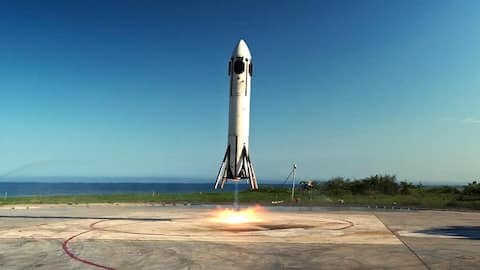Honda conducts successful test of its reusable rocket prototype
What's the story
Honda has successfully conducted a launch and landing test of its reusable rocket prototype. The test was conducted at Honda's facility in Taiki, Japan. The successful test is a major step toward the company's goal of achieving suborbital spaceflight by 2029. The company hopes to use this technology for satellite launches and other services in the future.
Test details
Honda's experimental vehicle reaches 271 meters altitude
Honda R&D, the research division of Japan's second-largest automaker, successfully landed its 6.3-meter experimental reusable launch vehicle after reaching an altitude of 271 meters at its test facility in Taiki. The company said that "no decisions have been made regarding commercialization of these rocket technologies," but it will continue to make progress in fundamental research with a technology development goal of enabling a suborbital launch by 2029.
Future prospects
Honda's interest in space technologies
In 2021, Honda had announced its interest in studying space technologies such as reusable rockets. The company believes that studying launch vehicles "has the potential to contribute more to people's daily lives by launching satellites with its own rockets." This could lead to various services compatible with other Honda businesses. Reusable launch vehicles have been instrumental in commercial space missions over the past decade, led by SpaceX's Falcon 9.
Industry trends
Other companies working on similar technologies
Other companies like Blue Origin and those in China and Europe are also working on reusable rocket plans. Tokyo-based start-up Innovative Space Carrier has announced a test-launch of its prototype reusable rocket in the US in December with an American engine. Honda's rival Toyota, the world's largest automaker by sales, has also invested in Taiki-based rocket maker Interstellar Technologies to support mass production of launch vehicles.
